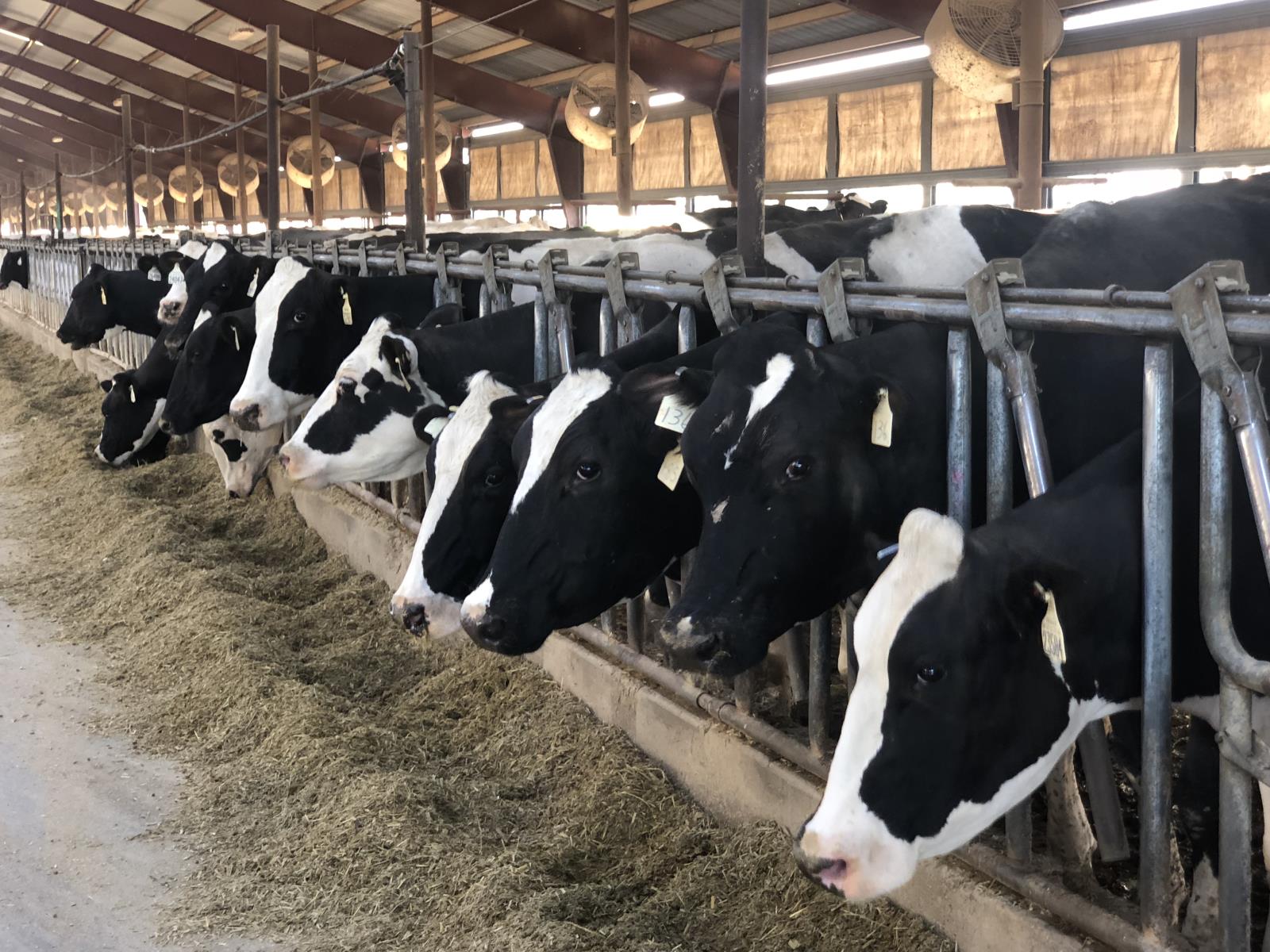Idaho's dairy industry finally feeling a bit of optimism

By Sean Ellis
Idaho Farm Bureau Federation
After suffering through several years of low milk prices, often below the cost of production, Idaho’s dairy operators finally have some reasons to be hopeful.
The prices that Idaho dairy operators receive for their milk has risen above break-even recently and that comes on top of two recent announcements of new milk processing facilities coming to Idaho.
In addition, Schreiber Foods recently announced it plans to expand yogurt production at its Logan, Utah, facility, which sources a lot of its milk from Idaho.
Those developments have combined to give Idaho’s 450 dairy operations a ray of hope that hasn’t been there for several years.
“Overall, the optimism is a lot better than it has been for several years,” said Gooding dairyman Steve Ballard.
The price that Idaho dairies receive for their milk has crept above break-even recently, said Idaho Dairymen’s Association Executive Director Rick Naerebout.
That’s a great sign but the industry still faces some real challenges, including ongoing trade battles, he added.
“Dairymen are starting to feel a little bit optimistic but they don’t want to get too confident,” Naerebout said. “There are a lot of headwinds out there, some things that might be able to push it the other way.”
Idaho’s average milk price had dropped to as low as $14 per hundred pounds of production – well below the cost of production – at the beginning of 2019 but it has rebounded recently and is now above $17.
“Prices aren’t great but they are the best prices we’ve seen for three or four years,” said Meridian dairyman Clint Jackson. “I think people are optimistic that 2019 will be a good year and the setting is there for 2020, hopefully, to even be better.”
Idaho’s dairy industry got its first bit of good news this year in February when Gem State Dairy Products announced it will build an aseptic milk processing facility in Twin Falls. Aseptic milk is shelf-stable milk that does not require refrigeration before the product is opened.
Construction of the 200,000-square-foot facility is set to begin this summer and it’s expected to be operational next summer.
Before the announcement, Idaho hadn’t landed a new milk processing facility since the Chobani yogurt plant in Twin Falls opened in December 2012.
Jetton Biochemistry Co., a Taiwanese dairy product manufacturer, announced in June that it will locate, in Nampa, a new blended powder facility for production of a proprietary dairy formula.
“We are very excited that Jetton Biochemistry has chosen to invest in a facility in Idaho,” Idaho State Department of Agriculture Director Celia Gould said in a news release. “Year after year, Idaho is one of the biggest dairy states in the country. The credit for that goes to our tremendous dairy sector. Their quality and volume production are what make Idaho a very attractive location for value-added dairy processing. Idaho’s dairy companies are innovative and consistently produce superior-quality ingredients that consumers trust.”
Idaho, which has more than 590,000 milk cows, ranks third in the nation in milk production and the state’s 450 dairies collectively produce about 15 billion pounds of milk per year.
The recent slight upturn in fortune for Idaho’s dairy sector is good news for the state’s overall farm economy.
The dairy industry accounts for about a third of Idaho’s total farm cash receipts. When livestock feed crops such as hay and corn silage are considered, the dairy industry’s impact on Idaho’s agricultural sector is huge.
Aseptic milk facilities are not typically high-volume and the amount of milk the JBC facility will use is small compared to how much the average Idaho dairy processing facility uses, but together, those two announcements as well as the Schreiber expansion are great news for Idaho’s dairy industry, Naerebout said.
“These are all wins,” he said. “Using baseball terms, I would probably call them singles. You win games by getting hits.”
Still can't find what you are looking for? Find by topic:
- Achievement Award (YF&R)
- Actions Alerts
- Advocacy
- Ag Ambassadors
- American Farm Bureau
- American Farm Bureau Policy Book
- Archive Photos
- Articles
- Board of Directors
- Calendar - State/District
- Calendar - County
- Capitol Reflections
- Collegiate Chapters
- Committee Application Form
- Commodities
- Convention Annual
- County Presidents & Board Information
- County Resource Page
- Delegate Form
- Discount Programs
- Discussion Meet
- Discussion Meet - High School
- Education Programs
- Events
- Excellence Award (YF&R)
- Expense Voucher
- Flickr
- Gem State Producer
- High School Discussion Meet
- High School Speech Contest
- Hope in Idaho Ag
- House of Delegates Credentials Form
- IFBF Board of Directors
- IFBF Policy Book
- IFBF Staff
- Insurance
- Legislative Action Program
- Legislative Issues
- Library
- MAC Trailer
- Magazines
- Map My Benefits
- Member Benefits
- Member Discount
- Membership Application
- Mission Statement
- Moving Agriculture to the Classroom
- Newsletter Sign up
- News Releases
- News Room
- Open Range Law
